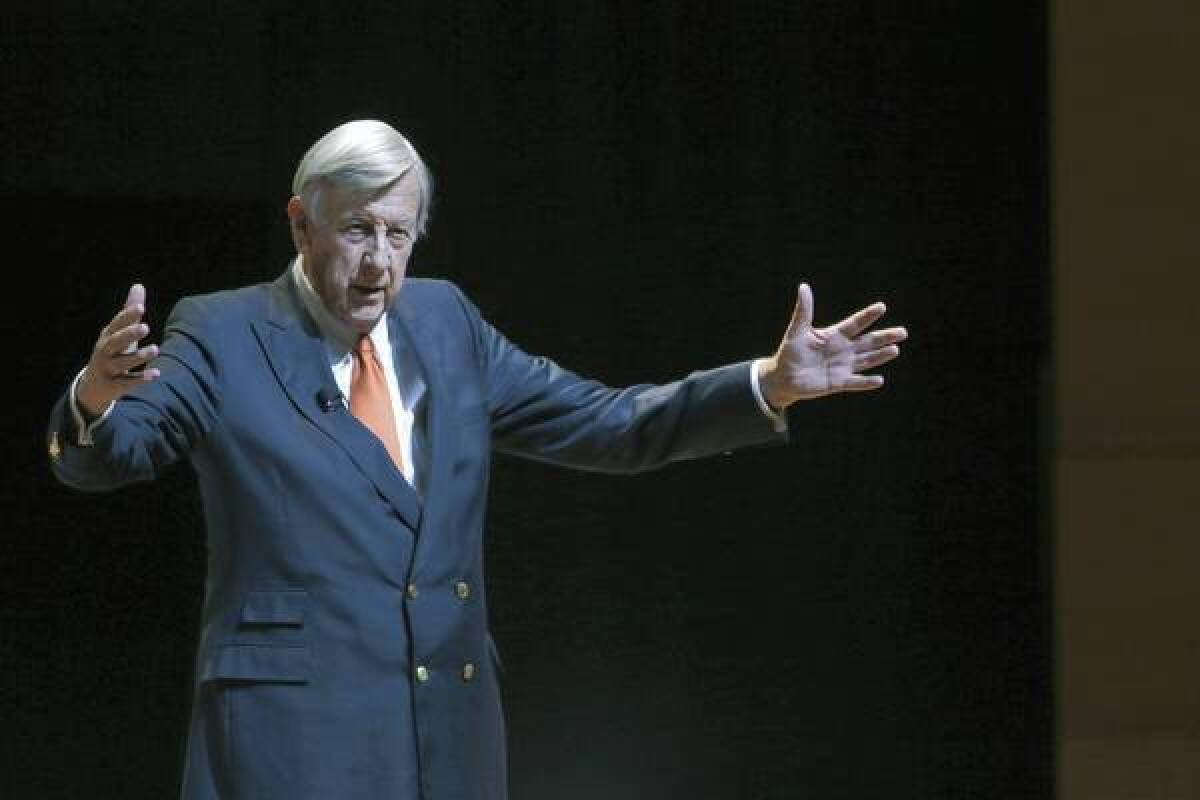James Martin dies at 79; futurist who predicted the rise of the Internet

British futurist James Martin, who predicted the ubiquity of computers and foretold the rise of the Internet in “The Wired Society,” a 1978 book that was nominated for a Pulitzer Prize, has died near his private island in Bermuda. He was 79.
Authorities in the British territory said Thursday that an autopsy is pending for Martin, whose body was found by a kayaker in waters near the author’s home. Police have said they do not believe a crime is involved.
While on sabbatical from IBM in 1977, Martin made his first million dollars traveling the world and lecturing business executives on the coming computer revolution. He turned the concept into a business and earned a fortune from it.
In “The Wired Society” — published decades before the digital age — he foresaw a planet networked by personal computers and other breakthroughs that included fax machines, telecommuting, e-commerce and cable networks that functioned as electronic “highways.”
Martin said he had “no crystal ball” but had looked “at the facts and at the logical steps those facts will lead to,” according to a 2010 interview with Times Higher Education a London-based magazine.
Since 2005, Martin had donated more than $150 million to the University of Oxford to help establish a school for study of such 21st century problems as climate change and the future of food. The gift made him the largest single private donor in Oxford’s nearly 900-year history.
The project had its roots in a lecture Martin gave in Hong Kong the day after the Sept. 11, 2001, attacks. He had revised his speech to reflect the horrendous events and was astonished when the first question he fielded was about an IBM operating system. It made him realize, he later said, that he needed to shift his focus from the minutiae of technology to the bigger picture of human survival.
He wrote a book that became a manifesto for his philosophy, “The Meaning of the 21st Century: A Vital Blueprint for Ensuring Our Future,” published in 2006, a year after the launch of what is known as the Oxford Martin School.
The institution “embodies Jim’s concern for humanity, his creativity, his curiosity and his optimism,” Ian Goldin, the school’s director, told the London Daily Telegraph last week.
James Thomas Martin was born in 1933 in Ashby-de-la-Zouche, a small England town. The only child of a clerical worker and his wife, he studied physics on a scholarship at Oxford.
Early in his career, he joined IBM and by the 1960s was regarded as an expert in complex systems. He was also a prolific author, writing dozens of books on technology that included many best-selling textbooks.
Martin had lived on Bermuda for many years when he decided to buy his own island in 1997, saying he wanted a more remote existence.
He is survived by his third wife, Lillian; a daughter, Corinthia, from his first marriage; two grandchildren and four stepchildren.
More to Read
Start your day right
Sign up for Essential California for the L.A. Times biggest news, features and recommendations in your inbox six days a week.
You may occasionally receive promotional content from the Los Angeles Times.






